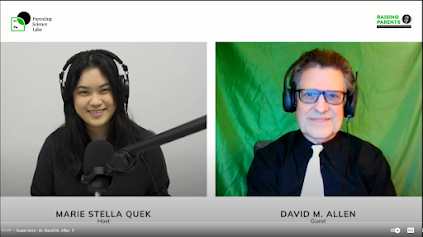As most of my readers know, I believe in a family systems view of
the way patients who are repetitively self-destructive or self-sabotaging are
acting. I do not think it’s “all in their heads,” but that it serves some sort
of purpose for the members of their families as a whole.
Furthermore, this is ongoing and continues to take place in the
present, not only when they may have been initially traumatized as children.
The family continues to interact over the trauma, because most people continue
to have relationships with their parents. If they don’t seem to, it’s often
because they are communicating through third parties. In this and the following
post, I’m going to illustrate how the field does not take this into account,
even when they look at systems issues.
I have also been writing about how the psychotherapy profession
has seemingly given up on family systems theory, except for some masters level
family therapists, because of a variety of social factors. Some readers may
argue with me about that because of the growing popularity of Richard
Schwartz’s Internal Family Systems Therapy. I really had not read much about it
because I always wondered why he was dealing with internal models of the family
system and not the actual living family members. Sort of like Schema Therapy or
working on one’s “inner child.”
I finally got around to reading a book he wrote for lay readers in
2008 called You Are the One You’ve Been Waiting For. Although I
think the kind of treatment described therein can indeed be helpful in many
situations in which interactions with one’s parents are not too complicated, I
do not think it would have helped most of my patients with severe personality
disorders.
And even in cases in which it does work, IMO it would be even more
effective if it paid attention to some other factors which the author seems
completely unaware of, as illustrated by an extensive case example he wrote
concerning a narcissistic doctor he names “Kevin” and his wife “Helen,” who was
described as a bright woman with a career of her own. I will talk about this
case in a moment.
One
thing about the IFS model that I’m not enamored with is his descriptions of
peoples’ personality “parts” — protectors, controllers, exiles, critics and
tor-mentors. I would like to believe he is speaking metaphorically, but he
seems to be following along with the tradition (in my opinion
inaccurate) of dividing up a personality into little beings running around
inside someone’s head with thoughts, desires, and feelings all their own – not
unlike the animated characters inside a girl’s head in the Inside Out movies.
Just like the psychoanalysts used to refer to id, ego, and superego as if they
were parts of the brain. I find the concept of a “false self” to be much more
useful.
A bigger problem is that he sees the problematic behavior of people as trying to protect themselves from reliving past hurts. He says they scan the environment looking for threats and run away at the slightest hint of one.
That wasn’t at
all what I saw in my patients.
People who couple off with people in a dysfunctional relationship
were not only not looking for red flags, they were actively ignoring them! If
anything, they seem to be attracted to certain dangers, like a
woman from an alcoholic family who marries one alcoholic after another.
I see them as protecting their parents and
the ongoing systems dynamics, not themselves per se. I fail to
see how being self-destructive can be selfish, unless someone is unbelievably
unintelligent. I will give a possible explanation of Kevin’s and Helen’s
behavior in that case, consistent with this idea, so back to that.
According to the author, for thirty years Helen had put up with
Kevin’s “carping about her taste in clothes, her child rearing, her political
opinions, her education, her intelligence, and her logic.” He frequently dissed
her in public. She also was said to hate his long work hours and felt
neglected. And now she suddenly said if he didn’t straighten up and fly right,
she was outta there.
Wait…she put up with this behavior for thirty years before
the ultimatum? Why so long? And how did Kevin interpret her staying despite the
fact that he must have repeatedly heard many of her complaints during
that period. The author attributes Helen’s sudden attack of courage to their
youngest child graduating high school, but many people with kids still at home
get divorced.
Furthermore, the book does not mention any ongoing interactions
during the marriage with parents and in-laws, despite the fact that he
attributes Keven’s behavior to his parent’s behavior towards him when he was a
kid. Did the parents just evaporate? Did Helen possibly get brave because they - or her own parents - died? We don’t know.
According to the book, Kevin’s father left his mother when he was seven, after a fight between them in which the dad hit his mom. The Dad remarried and never saw Kevin again. Mom then went on to have a series of problematic relationships. Sometimes, she seemed to not want to have Kevin around. Kevin handled this by throwing himself into academic and professional success and becoming fiercely independent. I believe this was meant to demonstrate to his mother that he did not “need” her or anyone else.
After some individual and couples counseling with the very
empathic Doctor Schwartz, and when he is starting to get in better touch with
himself, Kevin remembers blaming his mother for his dad’s leaving and making her
cry just after the breakup when he was seven. He says the “little boy” inside
him would rather die than upset her again.” That sounds like, in his mind
at least, he is protecting her - not himself - and feels guilty about what he did.
What I would hypothesize is that the mother indeed felt very guilty about the Dad leaving her and how it affected Kevin, and was blaming herself. This is why she became uncomfortable when he was around and seemed to prefer he be gone and be independent of her “bad” (in her view) influence on him. So he tried to make her feel less guilty by being successful without any need of her. And later maybe displaced the anger he felt towards his mother onto Helen (while displacing his anger at his abandoning father onto his co-workers).
So
perhaps Helen’s “job” was to stabilize him by allowing him to do this displacing. Her
initial attraction to him was probably due to something similar to this dynamic going on in her own family.
When he got better, he was able to be more empathic with his
mother’s behavior because he realized she felt she did not really deserve any
love. I agree that understanding a parent’s problematic behavior helps people
feel better about themselves – and about the parents. But of course this aspect
of her mother’s behavior just kicks the question of the reason for all this
back another generation. Why was she like that?
Schwartz comes quite close to understanding of the dialectical way dysfunctional couples interact, with
each enabling the false self of the other and punishing any evidence of each's own true
self. Each denies that they need this help themselves even as they give it to the
other. They have motives for doing so that have to do with
stabilizing their parents, but they also hate that they have to be like this.
They are ambivalent. So they also complain about it. Mixed messages!
Schwartz gets away from these ideas by instead thinking that "vicious
circles" of interactions are present- just as systems therapists also suppose. But then he
also calls it a dance. In a dance one member of the couple may
be leading, but simultaneously, the other is closely following. If either fails
to do their part, there is no dance.
Once a couple gets in touch with these patterns, however they do
it, this means that there is another issue (apart from ongoing interactions with living parents) that arises that may further greatly complicate making changes. Even if, say, the wife is ambivalent about her role, she has
thought all along that her husband wanted and needed her to perform it. So if he
suddenly says he no longer wants this without acknowledging his ambivalence, at
first she won’t believe him.
But if he somehow convinces her he is sincere, the wife is still prone
to think to herself, “Hey wait. I have been sacrificing for him for all this
time, and only now he tells me that he did not want me to! And
he no longer wants to enable me?” She feels betrayed. This of course also comes
out as a double message as her true self really wants the change too. Schwartz
talks about members of the couple being triggered by the other, but misses this
very important reason why.








